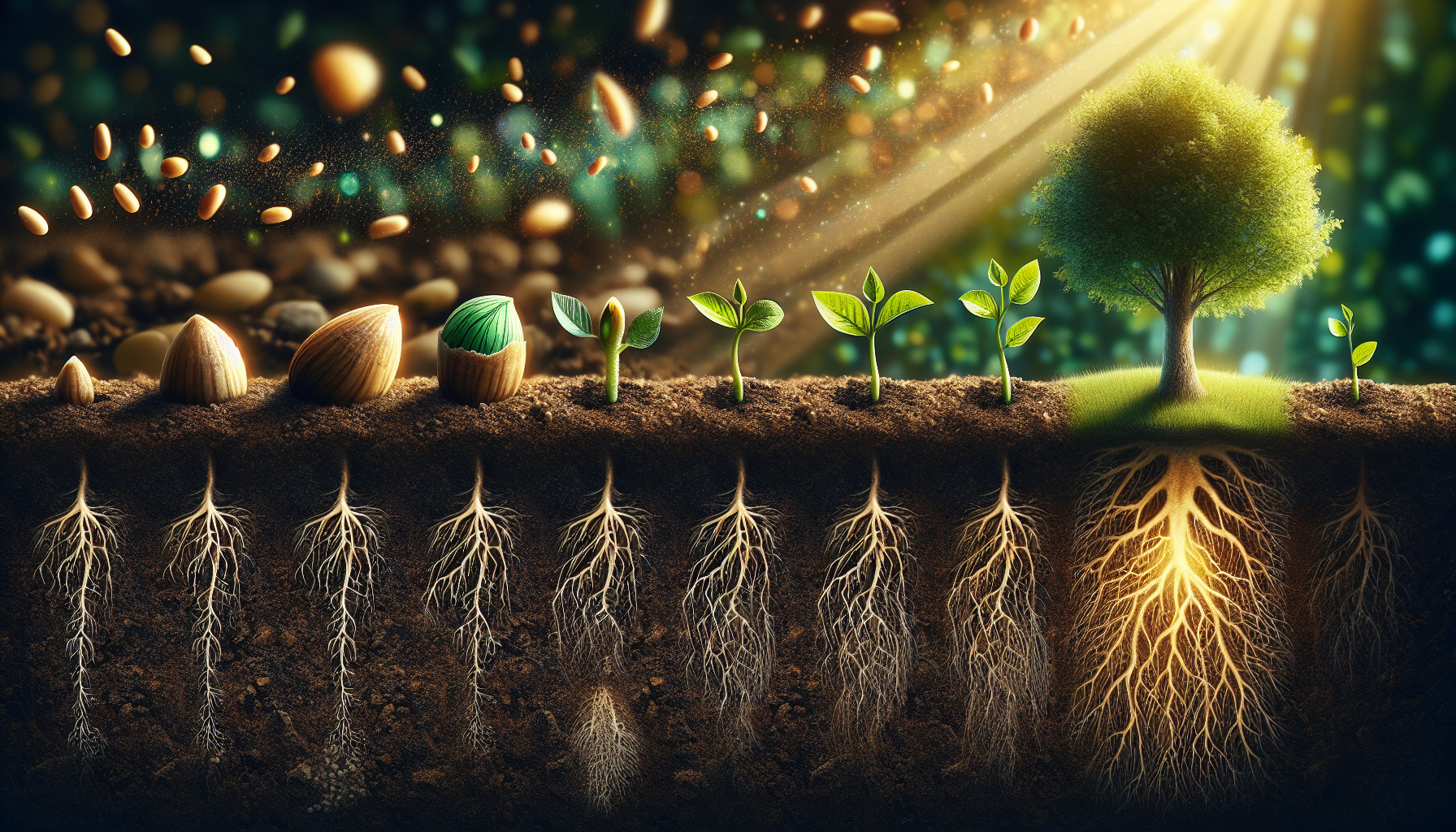The Rise of Green Jobs: A Sustainable Future

Green jobs are defined as roles that contribute to preserving or restoring the environment. They span a wide array of industries, including renewable energy, sustainable agriculture, waste management, and conservation. These jobs focus on minimizing waste, reducing pollution, and fostering conservation practices. As governments, businesses, and individuals increasingly recognize the importance of sustainability, the demand for skilled professionals in these areas is projected to rise significantly.
Ten Promising Eco-Friendly Jobs
1. Renewable Energy Technician: The global shift towards renewable energy sources such as solar and wind has created a high demand for technicians who can install and maintain these systems. These roles are integral to supporting the energy transition and reducing reliance on fossil fuels, as evidenced by the growth of solar energy jobs which increased by 167% from 2010 to 2020, according to the Solar Foundation. 2. Environmental Scientist: Environmental scientists play a crucial role in studying environmental issues and developing solutions. Their expertise is vital for policy-making, conservation efforts, and public health initiatives. For instance, they assess the impacts of pollution and advocate for regulatory changes to protect natural resources. 3. Sustainability Consultant: With the corporate world becoming more eco-conscious, sustainability consultants are sought after to help organizations implement eco-friendly practices. They assess operations, recommend improvements, and assist companies in achieving their sustainability goals. A report from McKinsey indicates that businesses that focus on sustainability can increase their profitability by up to 60%. 4. Urban Farmer: Urban farming is increasingly viewed as a sustainable solution for food production in densely populated areas. Urban farmers utilize innovative techniques, such as vertical farming and aquaponics, to grow food while minimizing environmental impact. This movement is particularly important in the context of food security and urban development. 5. Conservation Biologist: Conservation biologists are dedicated to preserving biodiversity and protecting ecosystems. They conduct research on the impacts of human activities on wildlife and develop strategies to mitigate these effects. Their work is essential in efforts to combat habitat destruction and climate change. 6. Climate Change Analyst: As the effects of climate change become more pronounced, the demand for climate change analysts is growing. These professionals interpret data and provide insights into climate trends, informing policy decisions and helping organizations plan for climate resilience. Their work is critical in understanding and addressing the ongoing climate crisis. 7. Green Building Architect: Architects specializing in sustainable design focus on creating energy-efficient buildings using sustainable materials. Their designs aim to minimize environmental impact and promote sustainable living. The U.S. Green Building Council reports that green buildings can reduce energy consumption by up to 30%. 8. Waste Management Specialist: Waste management specialists develop strategies for efficient waste disposal and resource recovery, promoting recycling and the circular economy. Their efforts are crucial in managing the ever-increasing waste generated by urban populations and reducing landfill reliance. 9. Sustainable Fashion Designer: With the fashion industry being a significant contributor to environmental degradation, sustainable fashion designers are reshaping the narrative. They create clothing using eco-friendly materials and ethical production methods, catering to the growing market of environmentally conscious consumers. 10. Ecotourism Guide: As ecotourism gains popularity, guides in this field educate tourists about local ecosystems while promoting conservation. They play a vital role in blending tourism with environmental stewardship, ensuring that travel contributes positively to the destinations visited.
Skills Required for Green Jobs
While the specific skills required may vary by profession, several key competencies are essential across the board: 1. Analytical Skills: The ability to assess situations and develop data-driven solutions is critical in many green roles. 2. Communication Skills: Effectively conveying complex environmental issues to diverse audiences is vital, especially for consultants and educators. 3. Problem-Solving Abilities: Innovating sustainable solutions requires creative thinking and an aptitude for overcoming challenges. 4. Technical Proficiency: Many green jobs necessitate familiarity with technology, whether it’s renewable energy systems, data analysis software, or sustainable design tools.
The rise of green jobs is not just a passing trend but a pivotal change in the job market, reflecting a global shift towards sustainability. These careers play a crucial role in addressing environmental challenges and promoting a healthier planet. For individuals looking to future-proof their careers, pursuing opportunities in this field presents a chance to make a meaningful impact while enjoying a rewarding professional path. Embracing eco-friendly careers supports personal growth and contributes significantly to the collective effort of creating a sustainable future for generations to come. As we navigate the challenges of the 21st century, green jobs will undoubtedly be at the forefront of the global economy, shaping a more sustainable world.
Solar Energy Installer
Sunrun, Vivint Solar, local solar installation companies
Core Responsibilities
Install and maintain solar panel systems on residential and commercial properties.
Conduct site assessments to determine optimal placement and configuration of solar systems.
Collaborate with electrical technicians to ensure proper integration with existing electrical systems.
Required Skills
Proficient in electrical systems and solar technology.
Strong problem-solving skills to address installation challenges.
Certification as a solar installer (e.g., NABCEP).
Sustainable Agriculture Specialist
USDA, local cooperative extensions, agricultural NGOs
Core Responsibilities
Develop and promote sustainable farming practices that enhance soil health and reduce chemical usage.
Conduct workshops and training sessions for farmers on eco-friendly techniques.
Collaborate with agricultural organizations to implement sustainability initiatives.
Required Skills
Knowledge of organic farming, crop rotation, and pest management.
Excellent communication and educational skills.
Degree in agricultural science or a related field.
Environmental Policy Analyst
Environmental Defense Fund, governmental agencies, think tanks
Core Responsibilities
Research and analyze environmental legislation and its impact on communities and ecosystems.
Prepare reports and policy recommendations for government agencies or non-profits.
Advocate for sustainable policies and practices at local, state, and federal levels.
Required Skills
Strong analytical and research capabilities, particularly in environmental science.
Proficient in data analysis and statistical software.
Master's degree in environmental policy, public policy, or related field.
Energy Efficiency Consultant
Utility companies, green building consultancies, engineering firms
Core Responsibilities
Assess energy consumption in buildings and recommend strategies for improvement.
Coordinate with clients to implement energy-saving measures and technologies.
Stay updated on the latest energy efficiency standards and technologies.
Required Skills
Expertise in energy auditing and building performance analysis.
Familiarity with HVAC systems, building codes, and energy efficiency certifications (e.g., LEED).
Ability to communicate complex technical information clearly to clients.
Climate Resilience Planner
City planning departments, environmental consultancies, non-profit organizations focused on climate advocacy
Core Responsibilities
Develop strategies for communities to adapt to the impacts of climate change, such as flooding and extreme weather.
Collaborate with local governments to incorporate climate resilience into urban planning.
Conduct risk assessments and create action plans based on climate data.
Required Skills
Background in environmental science, urban planning, or geography.
Strong project management and organizational skills.
Familiarity with climate modeling tools and GIS software.


